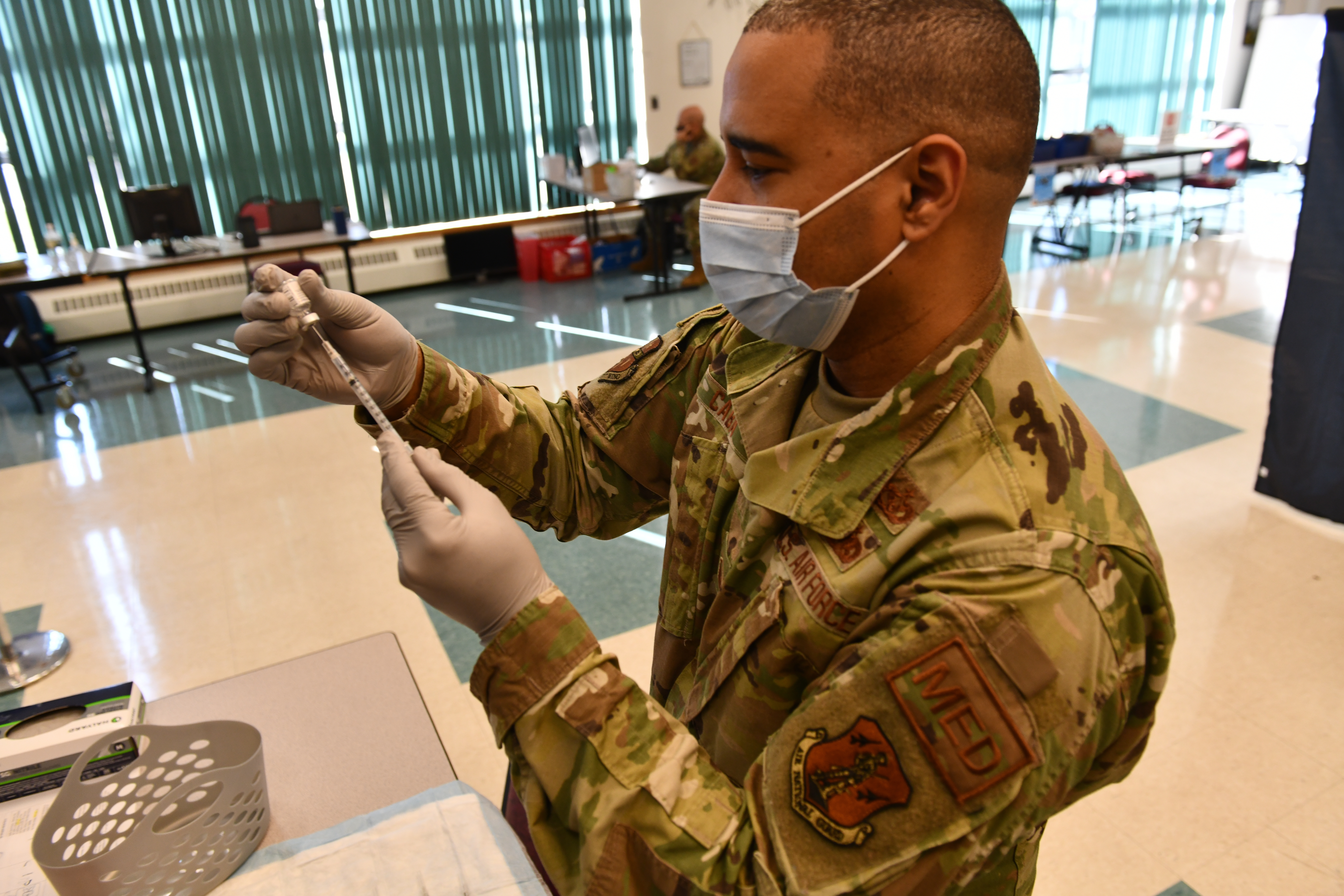The Pentagon expects all Defense Department personnel to be able to make an appointment for a COVID-19 vaccine by April 19, and all overseas personnel and beneficiaries will be able to get the shot by May as deliveries ramp up.
Because overseas personnel and families have limited options to receive a vaccine—unlike those serving within the United States, they must use on-base facilities—there has been concern about the ability to get a shot, said Lt. Gen. Ronald J. Place, the director of the Defense Health Agency, during an April 8 briefing. In response, the Pentagon is distributing 14 percent of its total vaccines to locations outside of the continental United States, where 7 percent of eligible personnel are stationed.
“We expect that we will be able to deliver at least an initial dose to every eligible OCONUS person who wants one by the middle of May,” Place said.
One complicating factor has been a recent production mistake at a Johnson & Johnson facility in Baltimore, which resulted in a batch of 15 million doses being ruined. The Johnson & Johnson vaccine, which does not require cold storage and is easier to ship, has been the priority for OCONUS locations. Now the Pentagon is working to increase Moderna and Pfizer vaccine shipments abroad.
“We are actively exploring other means to offset this temporary shortage,” Place said.
Within the Air Force, the department has delivered 499,683 vaccines to more than 125 sites worldwide, said Maj. Gen. Robert I. Miller, the director of medical operations in the Air Force Office of the Surgeon General. Of those, 444,083 doses have been administered, he said.
In the past three weeks, Pacific Air Forces and U.S. Air Forces in Europe have been prioritized since the two major commands have the highest percentage of personnel receiving the vaccine compared to other MAJCOMs. As of April 4, 35 percent of the 53,000 eligible personnel in USAFE have received at least one dose, with 22 percent fully vaccinated. In PACAF, 26 percent of the 109,000 eligible personnel have received at least one dose and 20 percent have been fully vaccinated, he said.
Because off-base options don’t exist for these personnel, the Air Force wants to keep these MAJCOMs as the “focus for vaccine distribution,” he said. For example, in February the Air Force delivered 6,500 Moderna doses to USAFE, and is now expecting to deliver 11,000 this month. The Air Force is also planning to ship more Pfizer doses to overseas locations as they become available for 16- to 17-year-olds, Miller said.
“The readiness of our force, including our Air and Space Force families, is our No. 1 priority,” Miller said.
